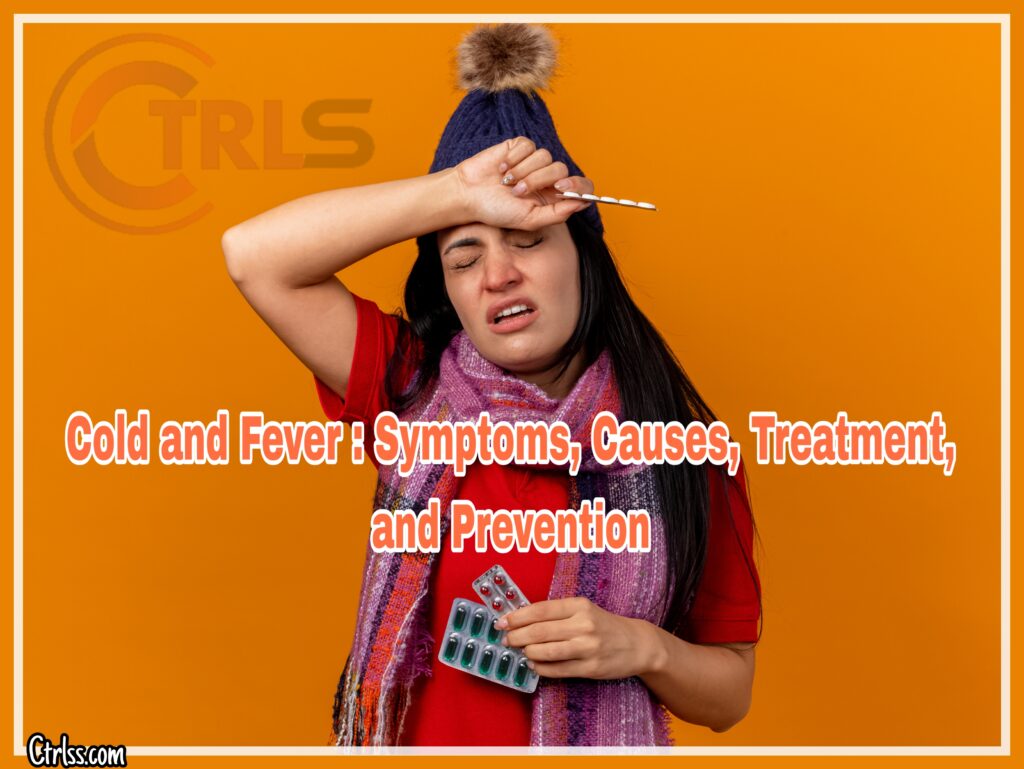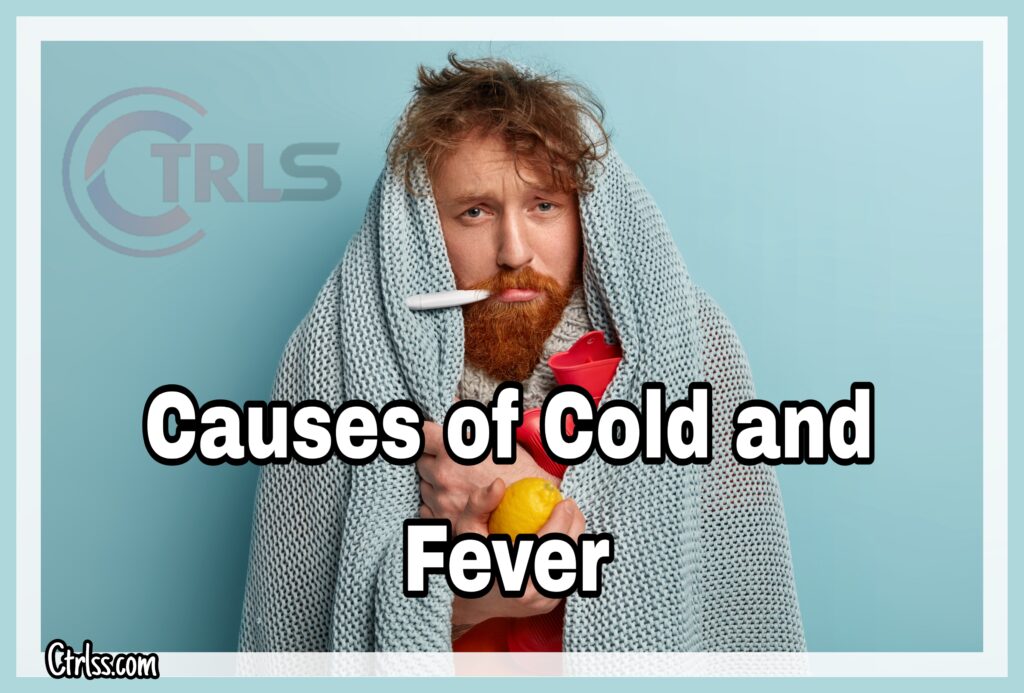Feeling under the weather? If you’re experiencing a combination of cold symptoms and fever, you’re not alone. In this comprehensive guide, we’ll dive into the world of cold and fever, exploring their symptoms, causes, treatment options, and preventive measures. So grab a cup of hot tea, cozy up in your favorite blanket, and let’s unravel the mysteries of cold and fever together!

Understanding Cold and Fever
Cold symptoms and fever symptoms often go hand in hand, causing discomfort and disrupting our daily routines. Let’s break down what each of these terms means:
Cold Symptoms
When you catch a cold, your body may experience a range of symptoms, including:
- Nasal Congestion: Feeling stuffy or having a blocked nose.
- Runny Nose: Excessive nasal discharge.
- Sneezing: Frequent, sudden, and uncontrollable sneezes.
- Sore Throat: Irritation or ache withinside the throat.
- Coughing: Persistent cough, often accompanied by phlegm.
- Headache: Aches and pains in the head.
- Fever: Mild to moderate elevation in body temperature.
These symptoms can vary from person to person, and the severity may differ depending on individual immune responses.
Fever Symptoms
Fever is characterized by an elevated body temperature, typically above 100.4°F (38°C). Common signs and symptoms related to fever include:
- Chills: Feeling cold, accompanied by shivering.
- Sweating: Perspiration and feeling hot.
- Body Aches: Generalized discomfort or muscle soreness.
- Headache: A throbbing or pounding sensation withinside the head.
- Weakness: Lack of energy and fatigue.
Fever often indicates that your body is fighting an infection or illness.
Causes of Cold and Fever

Causes of Cold and Fever
Both colds and fevers can be caused by various factors, including
- Viral Infections: The common cold is primarily caused by viral infections, typically rhinoviruses. Fevers can also result from viral infections such as influenza (flu).
- Bacterial Infections: In some cases, bacterial infections like strep throat can lead to fever symptoms.
- Environmental Factors: Exposure to cold weather or drafts can contribute to cold symptoms, while fevers can be triggered by underlying health conditions or inflammatory responses.
- Weakened Immune System: A compromised immune system due to stress, lack of sleep, or poor nutrition can make you more susceptible to colds and fevers.
Treating and Relieving Cold and Fever Symptoms
When it comes to treating cold and fever symptoms, rest and self-care are key. Here are some effective remedies to help you find relief:
Cold and Fever Remedies
- Stay Hydrated: Drink plenty of fluids, such as water, herbal tea, or clear soups, to stay hydrated and help alleviate congestion.
- Rest Up: Get ample rest to allow your body to recover and heal.
- Over-the-Counter Medications: Non-prescription cold and fever medications, like acetaminophen or ibuprofen, can help reduce fever and relieve discomfort. Always observe the endorsed dosage instructions.
- Warm Saltwater Gargles: Gargling with warm saltwater can soothe a sore throat and reduce inflammation.
- Steam Inhalation: Inhaling steam from a bowl of hot water or using a humidifier can help ease nasal congestion.
- Nasal Irrigation: Using a saline nasal spray or a neti pot can help clear nasal passages and relieve congestion.
- Soothe Coughing: Sip on warm honey and lemon tea or take cough suppressants to alleviate coughing.
Remember, it’s essential to consult with a healthcare professional, especially if your symptoms worsen or persist for an extended period.
Preventing Cold and Fever
Prevention is always better than cure. To minimize your chances of catching a cold or developing a fever, follow these preventive measures:
- Practice Good Hygiene: Wash your hands frequently with soap and water, especially before touching your face or eating.
- Cover Your Mouth and Nose: Use a tissue or your elbow to cover your mouth and nose when sneezing or coughing.
- Avoid Close Contact: Steer clear of individuals who are sick to minimize exposure to viruses and bacteria.
- Boost Your Immune System: Maintain a healthy lifestyle by eating a balanced diet, exercising regularly, and getting enough sleep.
- Stay Warm: Dress appropriately for the weather, especially during colder seasons, to reduce the risk of catching a cold.
Beating the Cold and Fever Blues
Having to deal with cold and fever symptoms can be a real downer. But armed with knowledge about their symptoms, causes, and effective remedies, you can conquer them with ease. Remember,it’s important to listen to your body, rest, and seek medical advice if necessary. By practicing good hygiene, adopting preventive measures, and taking care of your immune system, you can reduce the chances of falling victim to colds and fevers.
So, the next time you feel the sniffles coming on or notice a rise in body temperature, don’t fret. You now have the tools to combat cold and fever like a pro! Stay healthy, stay happy!
The information provided in this article is for educational purposes only and should not replace professional medical advice. Always consult with a healthcare provider for accurate diagnosis and personalized treatment.
Thank you for reading!



